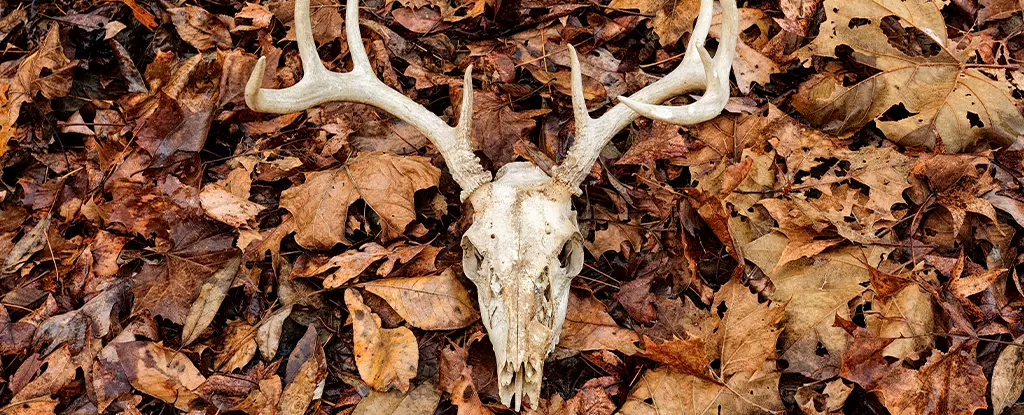In the serene landscapes of North America’s forests and meadows, a troubling issue is unfolding: chronic wasting disease (CWD). This condition, also known as “zombie deer disease,” is quietly making its way through deer populations, causing concern among scientists, conservationists, and the general public. With symptoms like drooling, lethargy, stumbling, and vacant gazes, CWD has been identified in over 800 samples of deer, elk, and moose in Wyoming alone. This significant number emphasizes the magnitude and urgency of the problem.
At the crux of the CWD mystery lies an unusual suspect: prions. Prions are misfolded proteins that have the ability to cause normal proteins in the brain to misfold as well, leading to neurological degeneration. These prion diseases are particularly alarming due to their resilience, persisting in the environment for years and resisting traditional disinfection methods such as formaldehyde, radiation, and extreme temperature incineration.
The transmission of CWD poses potential ecological and human health risks. Although there is no definite evidence that CWD can directly infect humans, the concern still lingers. Prion diseases like Creutzfeldt-Jakob disease (CJD) in humans and “mad cow disease” in cattle have demonstrated the ability to cross species barriers, resulting in devastating consequences. The outbreak of mad cow disease in Britain led to the slaughter of millions of cattle and 178 human deaths from the disease since 1995.
Despite no confirmed cases of CWD in humans, worries persist due to various factors. Studies indicate that the prions responsible for CWD can infect human cells under laboratory conditions, hinting at possible transmission. Additionally, humans already unknowingly consume potentially infected animals through hunting and eating them. Reports suggest thousands of CWD-infected animals were consumed yearly in 2017, with projections of a 20 percent increase each year.
Beyond immediate health concerns, CWD’s spread poses significant risks to ecosystems and economies. Deer hunting is a recreational activity and vital source of sustenance for many communities. The proliferation of CWD threatens to disrupt this balance, potentially decimating deer populations and jeopardizing food security. Moreover, the ecological effects of CWD extend beyond deer populations, affecting entire ecosystems.
Deer play a critical role in vegetation dynamics by shaping plant communities through browsing and grazing. A decline in deer populations could disrupt plant communities, soil health, and other wildlife species dependent on deer. The absence of CWD outbreaks in the UK, but its presence in wild deer in Norway in 2016, indicates the disease’s potential to spread beyond current ranges.
Combatting the myriad challenges posed by CWD requires a comprehensive and coordinated approach. This approach includes enhancing surveillance and monitoring to trace disease spread, implementing strict biosecurity measures to prevent transmission, such as controlling deer and elk movements, conducting regular testing, and promoting responsible hunting practices.
Further research is necessary to comprehend the disease’s transmission dynamics, ecological effects, and potential human health consequences. CWD underscores the vital link between ecosystems and human health. By heeding scientific warnings and taking decisive action to reduce risks, we can protect wildlife and human populations from the looming threat of CWD and other emerging zoonotic diseases, thus upholding our commitment to safeguarding the planet and its inhabitants for future generations.


Leave a Reply